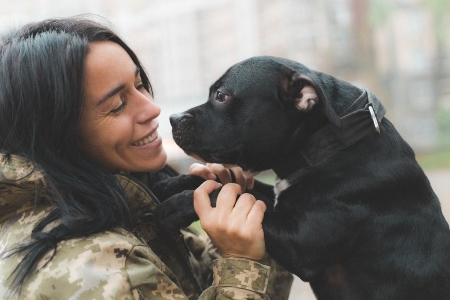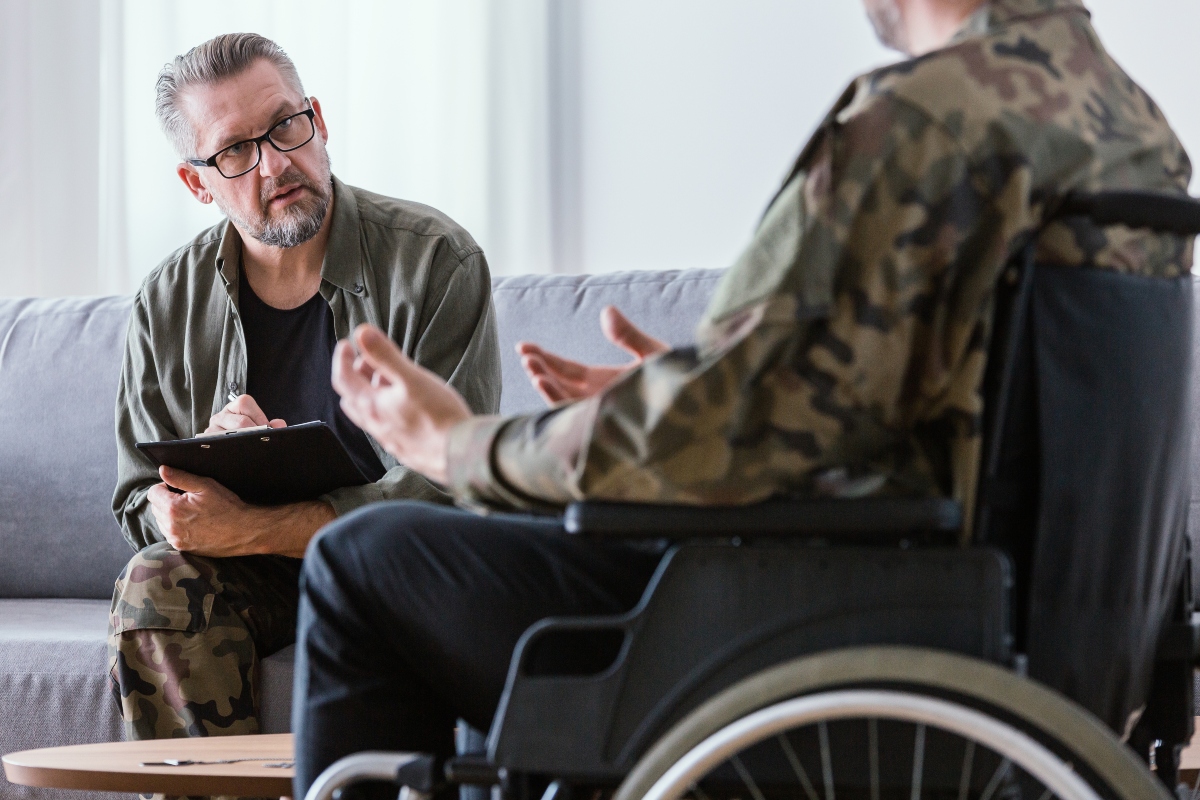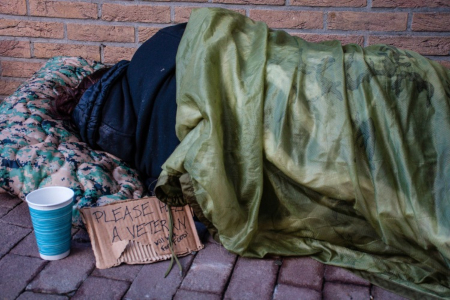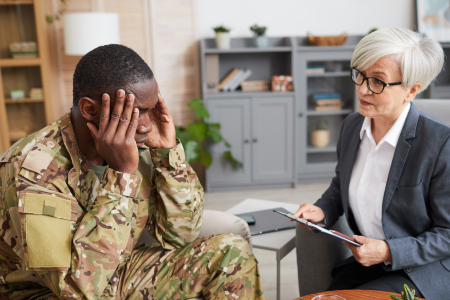Veterans Service Animals
Returning to civilian life is often more difficult than veterans may anticipate. Especially if they develop certain mental or physical health conditions while serving or after getting home. Service members and their families can face a variety of challenges when veterans make the transition to civilian life.
Many veterans find that adopting a service animal is helpful when learning to live a happier and more independent life. However, it is important that service animal assistance is combined with other treatment options. Keep reading for an overview of some of the most common mental and physical health conditions veterans experience. As well as information on service animals and their benefits in helping veterans adjust to civilian life.
Mental Health Disorders Veterans Struggle With
Many veterans are diagnosed with various mental health disorders during and after their deployments. These mental health conditions can interfere with a veteran’s ability to successfully return to civilian life. Even veterans who do not return home with physical injuries can be deeply impacted by their service.
Post-Traumatic Stress Disorder (PTSD)
PTSD is a condition most common to veterans and most studied by professionals. This condition causes flashbacks that feel realistic, nightmares, and other negative memories of traumatic events. These flashbacks to wartime events have long-term effects, impacting approximately 10-20 percent of veterans. Flashbacks can be triggered by loud noises, references, and other situations that strongly remind them of past events.
Depression
Traumatic experiences during deployment can also lead to depression, especially after a veteran has left the military. The brain is often capable of protecting individuals from the full effects of experiencing trauma, in the moment. However, once veterans are removed from active duty, the psychological effects of military service may appear. Upon returning to civilian life, veterans may experience distress as they relive their time in combat.
Veterans may face intense feelings of guilt or anxiety upon their return home. Returning to civilian life can uncover a wide range of emotions for veterans. In many cases, these emotions may feel overwhelming. If left unaddressed these distressing thoughts and feelings can lead to depression.
Substance Use Disorders
Many veterans turn to excessive alcohol or drug use to cope with the mental and physical effects of military life. It is possible for substance abuse to occur on its own. Some veterans may have had an existing substance use disorder prior to enlisting in the military. However, it is not uncommon for substance use disorder to be paired with other mental health conditions in veterans.
Health Conditions Veterans Struggle With
Veterans can also struggle with certain physical health conditions more frequently than the general population. Dealing with these challenges to physical health may make them more vulnerable to developing mental health conditions.
Traumatic Brain Injuries
Certain types of traumatic brain injuries can make it difficult for veterans to think clearly enough to accomplish certain tasks. Some injuries can make it physically difficult to do things most people can do easily. These injuries often require extensive rehabilitation to move toward any semblance of a normal life. Extensive rehabilitation services for traumatic brain injuries can be difficult for veterans and their families to afford.
Chronic Pain
Many veterans that experienced severe injuries will live with chronic pain for years or even the majority of their lives. Chronic pain can have an impact on how veterans are able to live their day-to-day lives. Some veterans may no longer be able to engage in their favorite hobbies or complete tasks that were once easy. Some veterans may choose to manage their chronic pain through medication, which can turn into dependency when left unchecked.
Physical Disabilities
Some serious injuries may result in physical disabilities that make it difficult to live a normal life. Injuries that may have impaired a veteran’s ability to accomplish everyday tasks are fairly common in the military. If a veteran has lost a limb physically or has limited mobility, they face physical challenges every day. These disabilities can lead to depression and make readjusting to civilian life even harder than it can be for other veterans.
How Service Animals Can Help
Service animals can help many veterans with these mental and physical health conditions. These animals can help manage their symptoms and improve the quality of their lives. Service animals typically fall into two categories of training.
Traditional service animals are specially trained to help their companion with physical tasks, typically a trained service dog. Emotional support animals are trained to help their companion improve mental health. Veterans may need to consider what type of service animal they need based on their specific situations.
Both types of service animals are specially trained to assist their owners in specific ways. Service animals are trained to assist veterans with independent living and improve their overall outlook on life. Even when the challenges they are facing seem impossible, service animals can assist veterans to return to civilian life.
Where to Find a Service Animal
Veterans have the option to find a service animal through traditional methods. However, there are several organizations that were created specifically to help veterans find just the right service animal for them. These service animals are trained specifically to handle conditions that most frequently affect veterans.
Some of the best options for finding a service animal as a veteran include:
- Disabled American Veterans
- Department of Veterans Affairs
- American Humane Society Pups4Patriots
- America’s VetDogs
- K9s for Warriors
The VA does not typically provide the actual service animals to veterans. However, the VA will assist veterans with finding a good fit at a reputable organization for their specific needs. The VA can help find an organization that specializes in training dogs who are specifically intended to be paired with veterans.
Get Veteran Mental Health Services at Solara
Service animals are generally the most effective when paired with other treatment options. Veterans returning from military service have many options in caring for their mental health. Solara Mental Health is a top choice among veterans in San Diego and surrounding areas. We offer a wide range of mental health treatments to veterans.
Receiving specialized therapy and treatment can help ease veterans’ transition from military to civilian life. Therapy can be especially helpful for veterans who are experiencing difficulty transitioning to civilian life. We provide treatment options to veterans in our care at Solara.
Our team of trained professionals has a proven history of supporting veterans’ mental health. Contact Solara today to learn more about the mental health services we offer for veterans.





